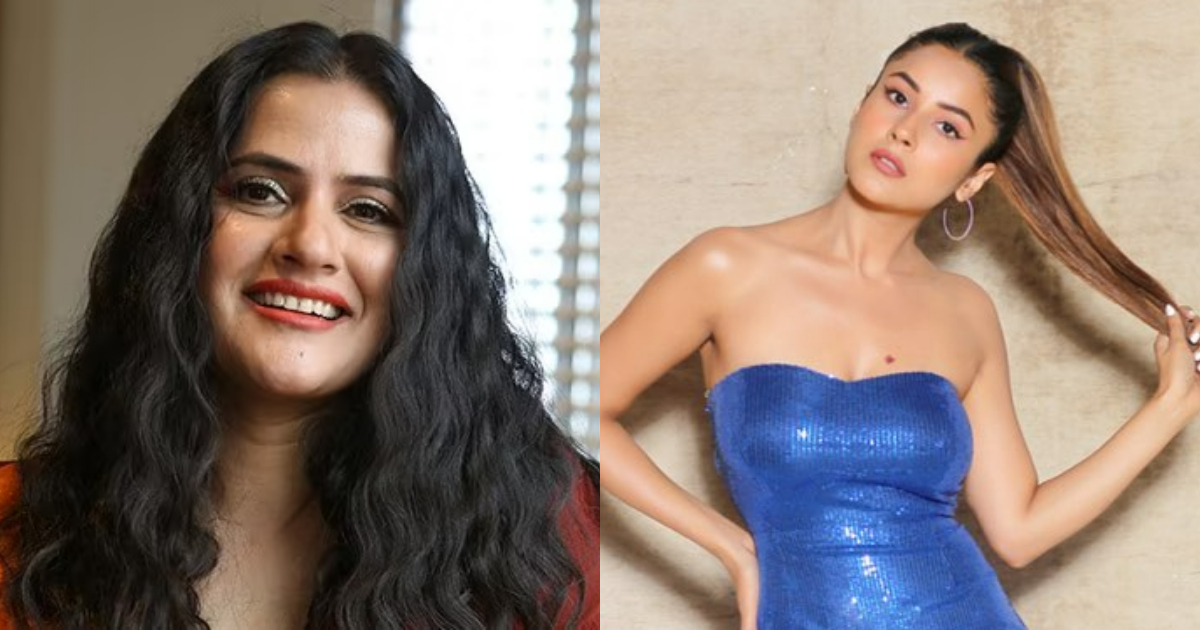Mumbai: Singer Sona Mohapatra’s recent tweets on growing “wannabe celebrity culture” through the lens of feminism and sisterhood, grabbed eyeballs. Many assumed that it was a dig at actor and former Bigg Boss contestant Shehnaaz Gill, because at one point, Mohapatra brought up Gill’s name and called her out for supporting #MeToo accused director Sajid Khan for his participating in Bigg Boss.
Many of her tweets, which were addressed to “opportunistic women” who side with male sexual predators to get ahead in life, also appeared to single out actress and former Bigg Boss contestant Shehnaaz Gill for supporting #MeToo accused Sajid Khan’s stint in the most recent season of Bigg Boss. Talking to Hindustan Times, Sona said, “I’ve been consistent about sticking my neck out for women’s empowerment and fair play over the decade as an artist in the public domain. This means that it’s equally important to call out opportunistic women who are happy to compromise whatever little ideals they have to pursue their ambitions of fame and fortune by siding with well-established male sexual predators. It sets back the fight for a better world and is heartbreaking. It’s not like we have ever received even something remotely resembling acknowledgment of their wrongdoings from men like Sajid Khan or (singer) Anu Malik. When women side with them and play dumb, it’s equally disturbing. In my book of feminism, not all women are saints, nor all men monsters.”
Here, she goes on to talk about her tweets being misconstrued as taking a ‘dig’ at Gill and how people are not seeing the broader picture but creating a catfight.
“If we expect men to do and be better, don’t those standards also apply to women as well? To read headlines of me ‘lashing out’, ‘slamming’ ‘taking a dig’ at another woman is deeply disturbing. It is a cliche of the patriarchal mindset,” says the singer, who recently released her song, Roti Machine.
Responding to people raising questions on her ethics around sisterhood and feminism, Mohapatra says, “It means believing in a common, bare minimum set of principles that are non-negotiable for all women. It is not that hard to define, for eg: we should refuse to work with known sexual predators, just like we should with sexual predators of children,”
In fact, Mohapatra has time and again raised questions on actor Jacqueline Fernandez being a wrong icon for the young people. “Of course it is important to have the right icon! You don’t want freebie accepting floozies who’re popular only because they’re fair & lovely. You want actual substance. You want to idolise an actress? Choose Alia Bhatt, Tabu or a hundred other actors who are really good at what they do. You want a singer to be your hero? Choose Shreya Ghoshal, The Nooran Sisters and a hundred other singers who actually sing live and don’t lip sync on stage,” she asserts.
Ahead of International Women’s Day nears, the singer expresses her wish to see a change in the narrative around women being played out through music videos.
“There are some disturbingly popular music videos out there where women are suffering abuse in the name of ‘mohabbat’… see Dhokha by Afsana Khan, or are portrayed as gold diggers who need ‘shopping’ to be won over or objectified, barbie dolls while all the men have the swag in all these scenarios. This is normalised in popular culture. It also puts a lot of unnecessary pressure on young men to provide too, apart from creating a sick stereotype for women. My ‘Roti Machine’ is one such musical response that I put out at the start of the year, where we say that love is a two way street. You have got to give respect to get respect back,” she concludes.


















